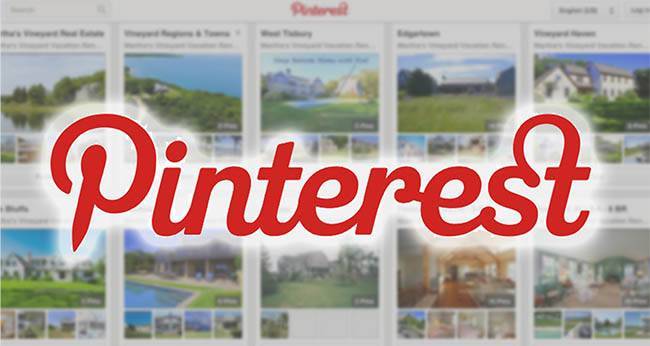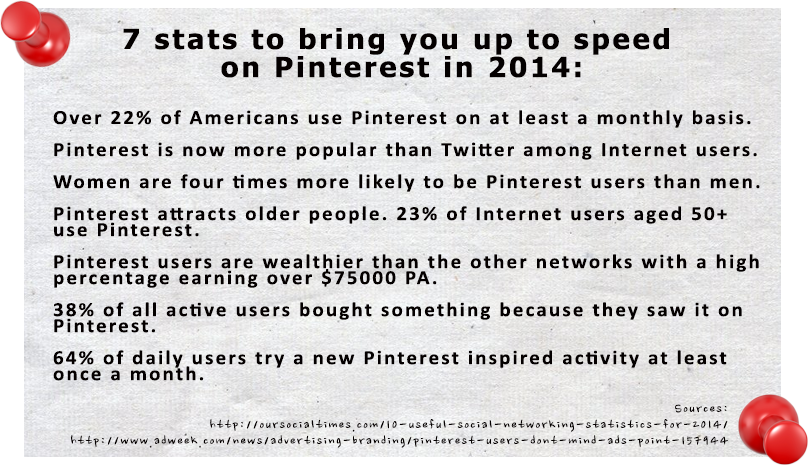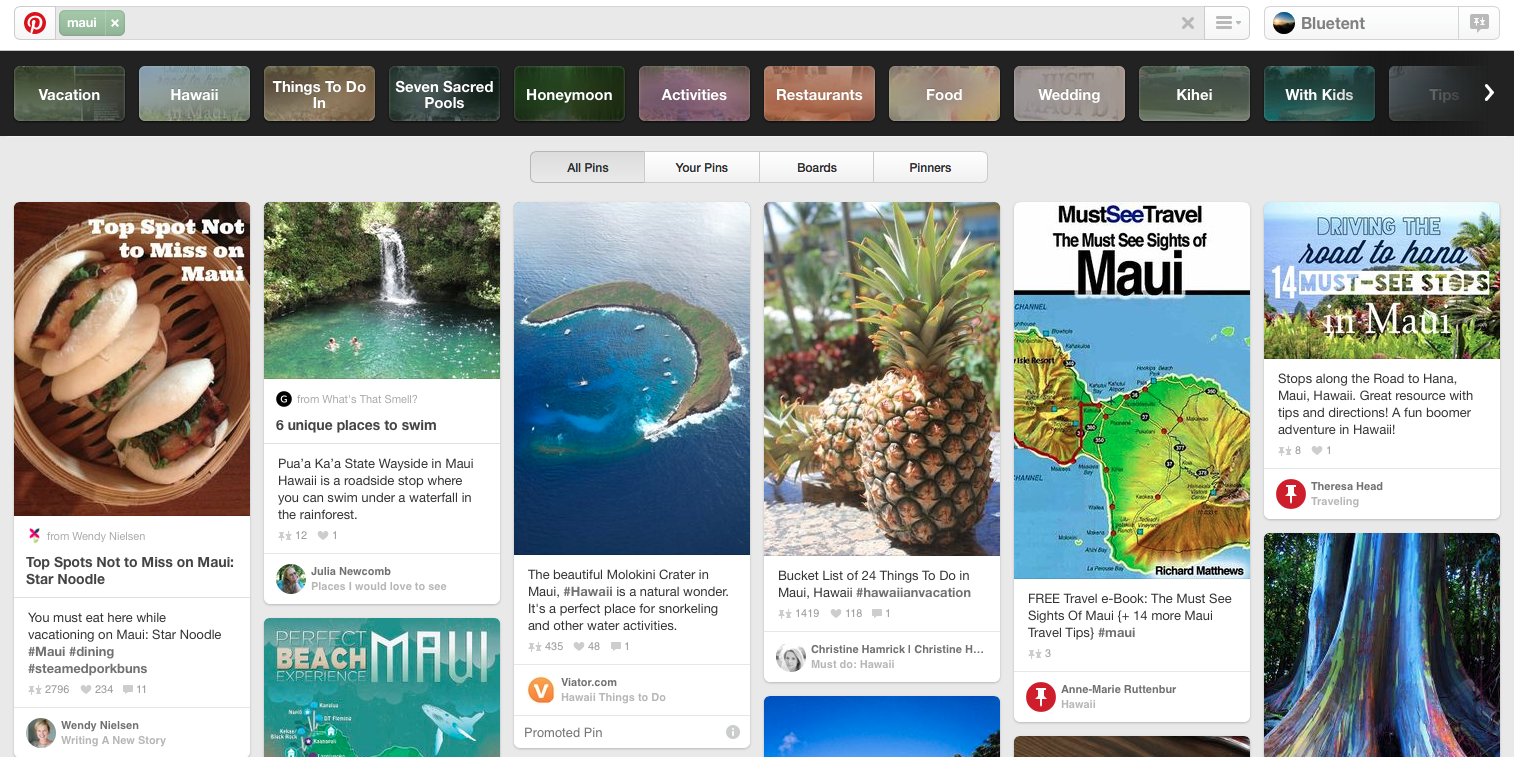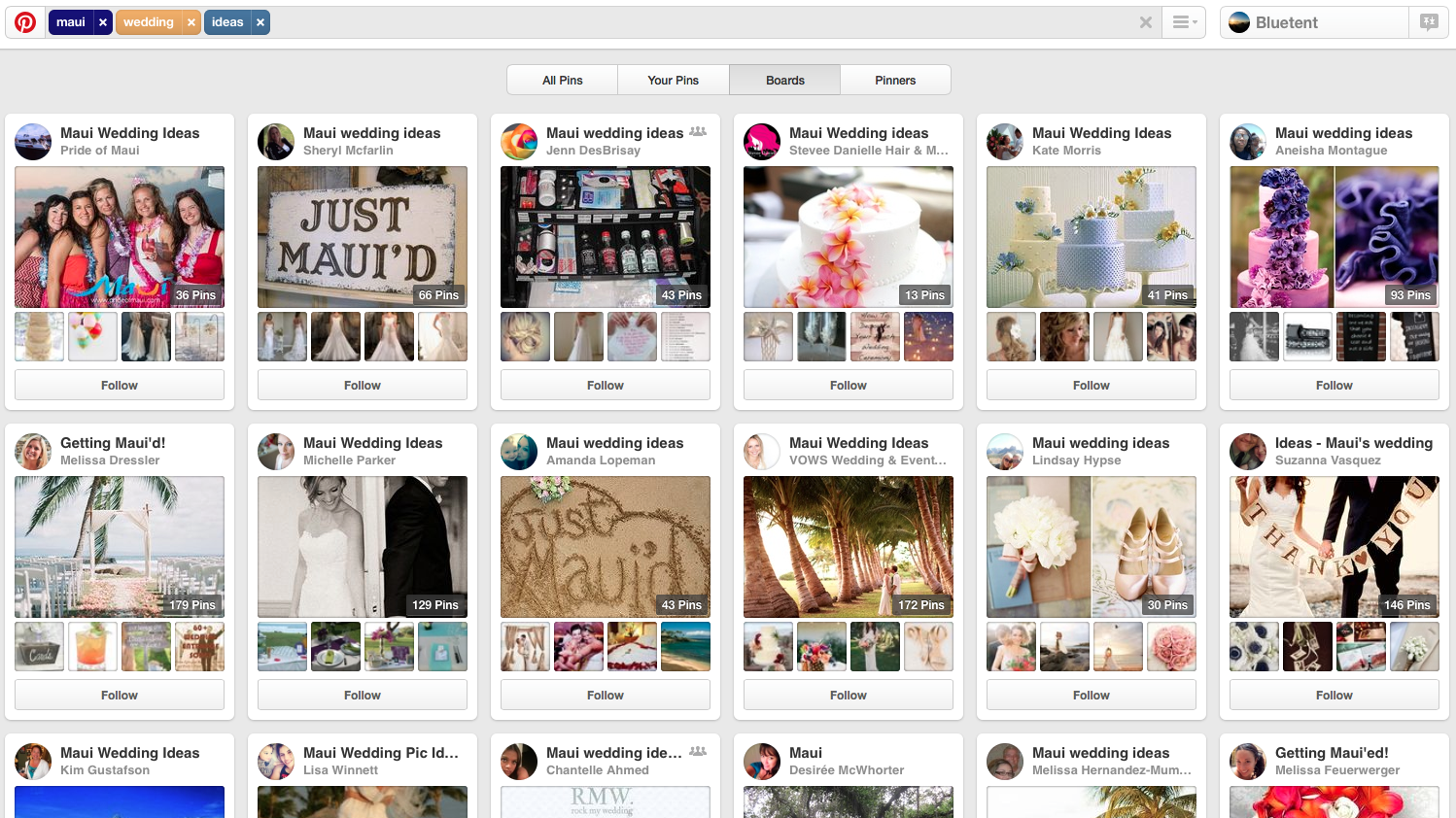
“Twitter is mostly about what I’m doing;
Facebook is about who I am;
Pinterest is about who I want to be.”
I read this quote by Tailwind CEO Daniel Maloney in a recent Search Engine Land article. It stuck with me because it explains playfully and to the point why the Travel and Hospitality Industry can benefit so much from Pinterest: It’s about becoming part of bucket lists and dreamboards – and trusting that many people make these travel dreams come true!
Many vacation rental property managers or destination resorts benefit from Pinterest already, even without doing anything actively for it. The continuous stream of web visitors from this social platform is easily explained when you look at the images someone shared to their Pinterest boards from your website. Check www.pinterest.com/source/ and attach your URL to the end of it. Hopefully you will see plenty of great pics because all of these images link back to your website!
“Accidental” traffic is great. But if you want to win big with Pinterest, then you shouldn’t just rely on people pinning for you. You need your own Pinterest business presence and it needs to be optimized. Read over the compiled stats below if you’re in doubt that your target audience is active on the social platform:
It’s the same with Pinterest as with every other social media platform: “just being there” is not enough. Your first step to build (or increase) your exposure is indicated through another recent stat:
39% use Pinterest as a general search engine
The implication is clear. If people are known to replace Google and Bing with Pinterest for certain searches, then you need to treat Pinterest less like another social media platform and more like a search engine. You need SEO on Pinterest, and every good search optimization initiative starts with …
Keyword Research
When Pinterest started in 2010, no one was concerned with keyword-rich titles or descriptions. Boards were named creatively, fitting the company spirit. If you look at board names like “Dreams of Sand and Water” or “Cozy Cottages” from a search perspective, then you have to admit: Most likely no one is searching for these exact terms. People will search for certain locations, beaches, or resorts in a specific area.
Your first step to optimize your Pinterest profile for search is thus to think of realistic terms that people would use to search for your content. Here’s the good thing: Pinterest will help you with this!
Let’s use a hospitality firm on the island of Maui as an example. If I simply type the destination name, Maui, into the search bar, then I will see this:
Check out the guided search suggestions in the colorful rounded squares below the search bar. Pinterest displays these to help people find the most relevant pins and boards. Write them down! You will want to use these word combinations in pin descriptions and as board titles! Try to go 3-4 levels deep and collect meaningful combinations of search words like Maui + Beach + Best.
Once you write down the Pinterest suggested search paths, decide which could replace your current board titles and which you wish to use for future boards. Then test the key phrases by searching for them. Have a look at the existing boards. How many are ranked for exactly your search term? How many pins do they have? If I search for “Maui Best Beaches,” I find only one board that matches my search term exactly and a couple that are close. They feature between 8 and 39 pins. On Pinterest with its 750 million boards this is NO competition! So, this keyword combination is a keeper, and I would likely replace my “Dreams of Sand and Water” title with it!
Now let’s look at a more competitive search. Try “Maui Wedding” and check the existing boards. As expected, the list is endless and some of these boards feature hundreds of pins. You can decide to take on the field or you can see if you are able to find a less crowded niche. When I click into the search bar, Pinterest will again try to help me with ideas of popular searches.
I see Maui Wedding Venues, Maui Wedding Dress, Maui Wedding Reception and Maui Wedding Ideas. Let’s check on the last one:
You can tell that the competition for “Maui Wedding Ideas” is already much lower. The boards exactly matching the key phrase end in the third line of results. An active pinner would be able to beat the competing boards over time and end up in top spots.
Test it, rate it … then decide
Use the suggestions in the search bar and in the colored squares to determine titles for your boards. I like to work in an Excel spreadsheet and mark my researched keyword combinations with “codes” like VHC = very high competition, LC = low competition etc.
Once again: Remember that strong competition does not disqualify a keyword combination. You may decide that you are able to beat a large field of similar boards, but you need to know for sure that you have the time and commitment to work hard on it. If you run your presence on a low level, then niches may make it easier for you to rank.
Board names are only the beginning. Use the entire list of search term combinations you created (even the high competition ones) for your pin descriptions. Be sure NOT to do senseless keyword stuffing. Write useful copy in full sentences that showcases your company spirit, but be sure to mix in one of Pinterest’s frequently used search term combinations in the first few sentences.
You can go as far as to optimize your image file names with keywords. Definitely add a keyword to your profile name. (Instead of “Sunshine Vacation Properties” say “Sunshine Maui Vacation Properties,” for example.)
Hopefully this gives you a good start on your Pinterest keyword research. Please reach out to the Bluetent team if you’d like help setting up your Pinterest presence or if you want recommendations for your profile. Watch out for the release of part II of this article for more Pinterest optimization ideas and best practices that will help you get the most out of your presence. You can make sure that you won’t miss it by signing up for our Travel Marketing Newsletter TraVRse.






 Your California Privacy Choices
Your California Privacy Choices